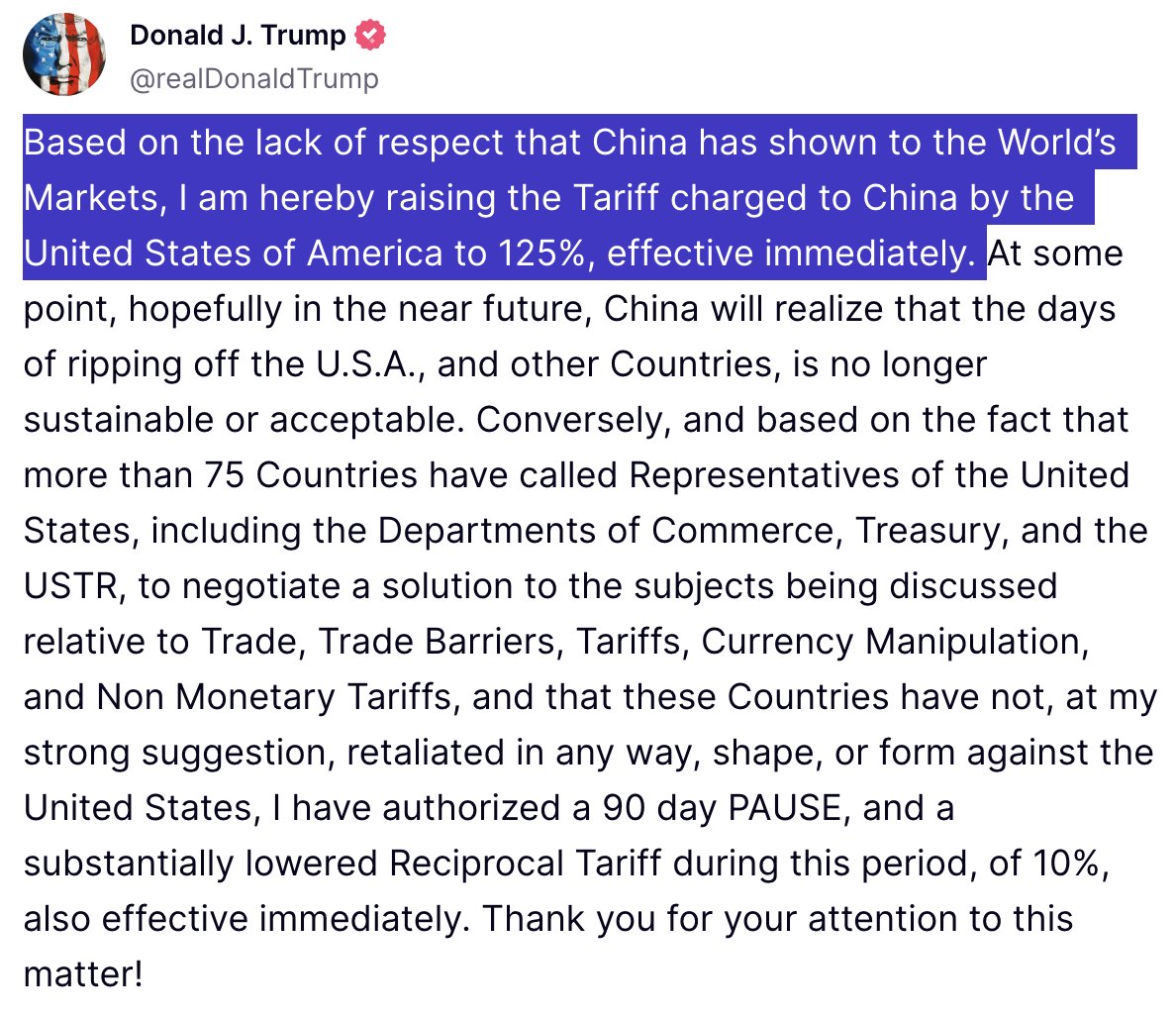Business
Mark Zuckerberg promises end to fact-checkers, says Facebook censorship has ‘gone too far’
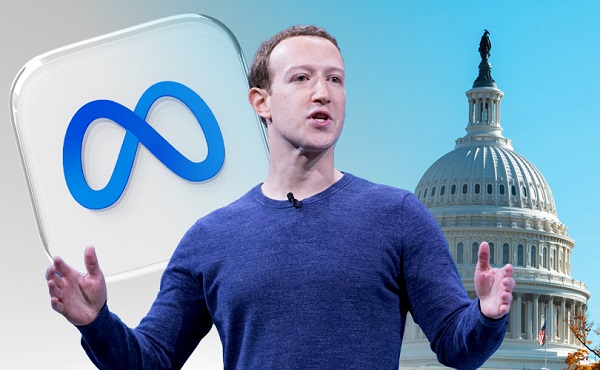
From LifeSiteNews
In a surprise early morning post, Mark Zuckerberg took to Instagram to announce that Meta – the parent company of Facebook, Instagram, and Threads – will be taking steps to “dramatically reduce the amount of censorship on our platforms,” while seemingly placing a large share of the blame for past extreme censorship measures on pressure from the Biden administration and legacy media.
“The recent elections feel like a cultural tipping point towards once again prioritizing speech,” noted Zuckerberg, who met with president-elect Donald Trump shortly after his decisive election victory.
Zuckerberg said that while he started building social media “to give people a voice,” “governments and legacy media have pushed to censor more and more.”
“A lot of this is clearly political,” he noted.
He explained that Meta’s complex systems for guarding against harmful content such as drugs, terrorism, and child exploitation have been prone to make mistakes: “It’s just too many mistakes, and too much censorship.”
Following X/Twitter’s lead, Meta platforms will replace “fact-checkers” with “community notes.”
“After Trump first got elected in 2016, the legacy media wrote nonstop about how misinformation was a threat to democracy,” said Zuckerberg, but Meta’s fact checkers have been “too politically biased, and have destroyed more trust than they’ve created.”
Meta will also move its trust and safety and content moderation teams out of California, and its U.S.-based content review will soon be based in Texas.
“We’re going to simplify our content policies and get rid of a bunch of restrictions on topics like immigration and gender that are just out of touch with mainstream discourse,” said Zuckerberg. “It’s gone too far.”
‘It feels like a new era now’
“We’re bringing back civic content,” said Zuckerberg. “For a while, the community asked to see less politics because it was making people stressed. So we stopped recommending these posts. But it feels like we’re in a new era now, and we’re starting to get feedback that people want to see this content again.”
“We’re going to work with President Trump to push back on governments around the world that are going after American companies and pushing to censor more,” said the social media titan.
“The U.S. has the strongest constitutional protections for free expression in the world,” but other countries continue to exert substantial force to limit free speech on the internet.
Zuckerberg explained:
- Europe has an ever-increasing number of laws institutionalizing censorship and making it difficult to build anything innovative there.
- Latin American countries have secret courts that can order companies to quietly take things down.
- China has censored our apps from even working in the country.
“The only way that we can push back on this global trend is with the support of the U.S. government,” he insisted. “And that’s why it’s been so difficult over the past four years when even the U.S. government has pushed for censorship.”
“By going after us and other American companies, it has emboldened other governments to go even further,” he continued. “But now we have the opportunity to restore free expression and I am excited to take it.”
‘Humility’ to now play a role in Meta’s management of its platforms
In his 2019 speech at Georgetown University that portended social media’s crackdown on free speech, especially those expressing thoughts at odds with woke ideology, Zuckerberg claimed, “Some people believe giving more people a voice is driving division rather than bringing us together. More people across the spectrum believe that achieving the political outcomes they think matter is more important than every person having a voice. I think that’s dangerous.”
The changes that were announced by Zuckerberg this morning are an attempt to return to the commitment to free expression he set out in his Georgetown speech, according to Joel Kaplan, Meta’s Chief Global Affairs Officer.
“That means being vigilant about the impact our policies and systems are having on people’s ability to make their voices heard, and having the humility to change our approach when we know we’re getting things wrong.”
However, Facebook has long faced criticism for its harsh censorship regime, including for deplatforming conservative users and censoring speech critical of COVID mandates and the LGBT agenda, in addition to facilitating child sex trafficking.
In 2020, Zuckerberg spent more than $400 million to influence the presidential race that year, which election integrity advocates have credited with likely handing the White House to Joe Biden.
X/Twitter and Facebook headed in opposite directions?
Just as Mark Zuckerberg announced a new era of free speech on Meta’s Facebook, Instagram and Threads, Elon Musk and his social media giant, X (formerly Twitter) seemed to be headed in the opposite direction, toward increased censorship and suppression.
Musk and X were slammed on X over the weekend after new restrictions and punitive measures were revealed for posts critical of X, those that are deemed to be too negative, and even those that “critique or challenge other users or public figures in a way that’s perceived as harsh or personal rather than constructive.”
Business
Trump raises China tariffs to 125%, announces 90-day pause for countries who’ve reached out to negotiate

 MxM News
MxM News
Quick Hit:
On Wednesday, President Donald Trump announced an immediate increase in tariffs on China to 125%, citing “a lack of respect” toward global markets. At the same time, he approved a 90-day pause and tariff reduction for over 75 countries that have engaged with the U.S. on trade reforms.
Key Details:
-
Trump said the dramatic tariff hike on China is meant to send a clear message: “the days of ripping off the U.S.A., and other Countries, is no longer sustainable or acceptable.”
-
The president added that over 75 countries have reached out to the U.S. Departments of Commerce, Treasury, and the U.S. Trade Representative (USTR) to negotiate on issues including trade barriers, tariffs, and currency manipulation.
-
As a goodwill measure, Trump authorized “a 90 day PAUSE, and a substantially lowered Reciprocal Tariff during this period, of 10%, also effective immediately,” noting that these countries had not retaliated against the U.S. despite strong prior warnings.
Diving Deeper:
President Donald Trump on Wednesday took a major step in reshaping the global trade landscape, announcing via Truth Social that he is raising tariffs on China to 125% effective immediately. Trump attributed the decision to “the lack of respect that China has shown to the World’s Markets,” and said it is time for Beijing to face consequences for its trade practices.
“At some point, hopefully in the near future, China will realize that the days of ripping off the U.S.A., and other Countries, is no longer sustainable or acceptable,” Trump stated.
The president emphasized that this was not a blanket policy toward all trading partners. In contrast to China, Trump said more than 75 countries have reached out to American trade officials to address ongoing issues related to tariffs and trade barriers.
“More than 75 Countries have called Representatives of the United States, including the Departments of Commerce, Treasury, and the USTR, to negotiate a solution to the subjects being discussed relative to Trade, Trade Barriers, Tariffs, Currency Manipulation, and Non Monetary Tariffs,” he wrote.
Citing those discussions and the absence of retaliation against the U.S., Trump approved a temporary reduction in reciprocal tariffs for those countries. “I have authorized a 90 day PAUSE, and a substantially lowered Reciprocal Tariff during this period, of 10%, also effective immediately.”
The move reflects a two-pronged strategy—punishing China for what Trump sees as longstanding economic abuses while rewarding countries that have shown a willingness to work with the U.S. to level the playing field.
The 125% tariff marks one of the most aggressive steps in Trump’s America First trade doctrine, likely signaling to both allies and adversaries that a second Trump administration would continue its hardline economic policies.
Alberta
Alberta takes big step towards shorter wait times and higher quality health care

From the Fraser Institute
On Monday, the Smith government announced that beginning next year it will change the way it funds surgeries in Alberta. This is a big step towards unlocking the ability of Alberta’s health-care system to provide more, better and faster services for the same or possibly fewer dollars.
To understand the significance of this change, you must understand the consequences of the current (and outdated) approach.
Currently, the Alberta government pays a lump sum of money to hospitals each year. Consequently, hospitals perceive patients as a drain on their budgets. From the hospital’s perspective, there’s little financial incentive to serve more patients, operate more efficiently and provide superior quality services.
Consider what would happen if your local grocery store received a giant bag of money each year to feed people. The number of items would quickly decline to whatever was most convenient for the store to provide. (Have a favourite cereal? Too bad.) Store hours would become less convenient for customers, alongside a general decline in overall service. This type of grocery store, like an Alberta hospital, is actually financially better off (that is, it saves money) if you go elsewhere.
The Smith government plans to flip this entire system on its head, to the benefit of patients and taxpayers. Instead of handing out bags of money each year to providers, the new system—known as “activity-based funding”—will pay health-care providers for each patient they treat, based on the patient’s particular condition and important factors that may add complexity or cost to their care.
This turns patients from a drain on budgets into a source of additional revenue. The result, as has been demonstrated in other universal health-care systems worldwide, is more services delivered using existing health-care infrastructure, lower wait times, improved quality of care, improved access to medical technologies, and less waste.
In other words, Albertans will receive far better value from their health-care system, which is currently among the most expensive in the world. And relief can’t come soon enough—for example, last year in Alberta the median wait time for orthopedic surgeries including hip and knee replacements was 66.8 weeks.
The naysayers argue this approach will undermine the province’s universal system and hurt patients. But by allowing a spectrum of providers to compete for the delivery of quality care, Alberta will follow the lead of other more successful universal health-care systems in countries such as Australia, Germany, the Netherlands and Switzerland and create greater accountability for hospitals and other health-care providers. Taxpayers will get a much better picture of what they’re paying for and how much they pay.
Again, Alberta is not exploring an untested policy. Almost every other developed country with universal health care uses some form of “activity-based funding” for hospital and surgical care. And remember, we already spend more on health care than our counterparts in nearly all of these countries yet endure longer wait times and poorer access to services generally, in part because of how we pay for surgical care.
While the devil is always in the details, and while it’s still possible for the Alberta government to get this wrong, Monday’s announcement is a big step in the right direction. A funding model that puts patients first will get Albertans more of the high-quality health care they already pay for in a timelier fashion. And provide to other provinces an example of bold health-care reform.
-

 2025 Federal Election1 day ago
2025 Federal Election1 day agoHarper Endorses Poilievre at Historic Edmonton Rally: “This Crisis Was Made in Canada”
-

 conflict2 days ago
conflict2 days agoZelensky Alleges Chinese Nationals Fighting for Russia, Calls for Global Response
-

 2025 Federal Election1 day ago
2025 Federal Election1 day agoMark Carney’s radical left-wing, globalist record proves he is Justin Trudeau 2.0
-

 2025 Federal Election1 day ago
2025 Federal Election1 day agoAn In-Depth Campaign Trail “Interview” With Pierre Poilievre
-
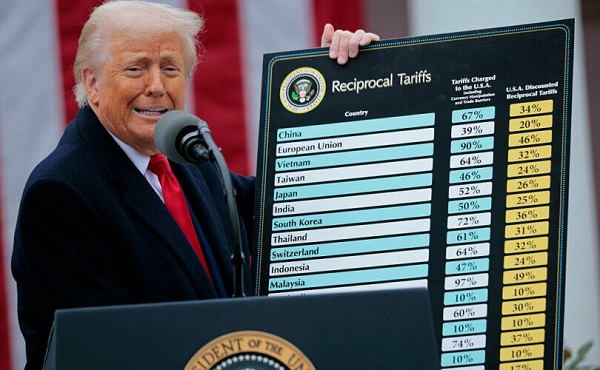
 Business1 day ago
Business1 day agoTrump’s tariff plan replaces free trade with balanced trade. Globalists hate that.
-
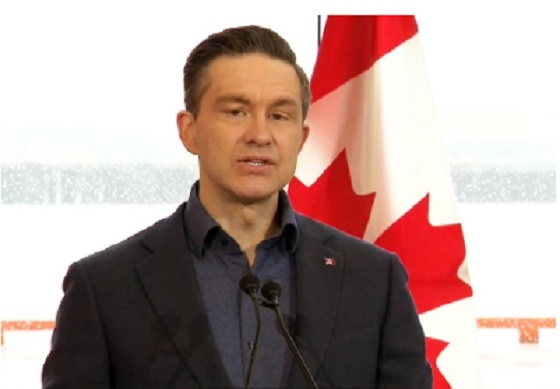
 2025 Federal Election2 days ago
2025 Federal Election2 days agoPoilievre Will Bring in ‘One and Done’ Resource Approvals, and Ten Specific Projects Including LNG Canada Phase II
-

 Bruce Dowbiggin2 days ago
Bruce Dowbiggin2 days agoBettman Gives Rogers Keys To The Empire. Nothing Will Change
-
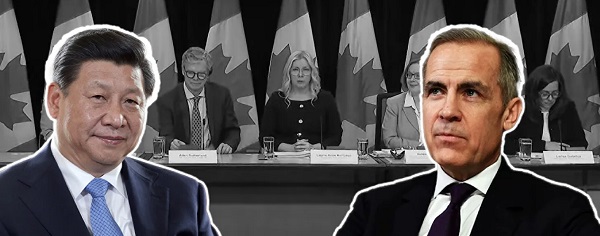
 2025 Federal Election2 days ago
2025 Federal Election2 days agoElection Security Briefing Confirms CCP-Linked Operation Boosted Carney
